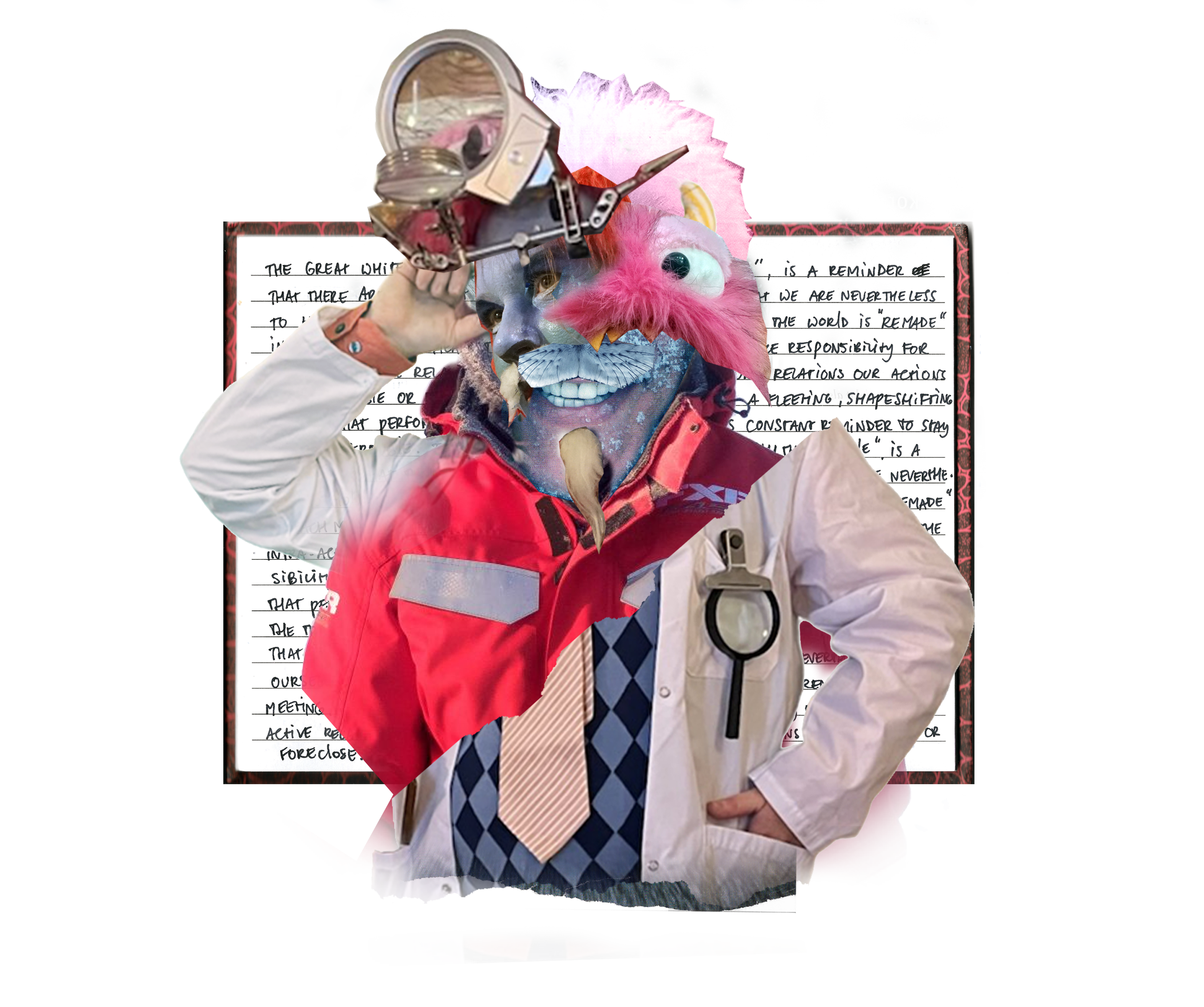Moves Towards Innocence: Difference between revisions
No edit summary |
No edit summary |
||
| Line 1: | Line 1: | ||
[[File:Great White Beast.png|thumb]] | [[File:Great White Beast.png|thumb]] | ||
You have encountered a Great White Beast! | |||
''“It is precisely by denying culpability or assuming that one is not implicated in violent relations toward others, that one is outside them, that violence can be perpetuated. Violence, especially of the liberal varieties, is often most easily perpetrated in the spaces and places where its possibility is unequivocally denounced”''</ref>Berlant in Rothberg, M. (2019 p.49) The implicated subject. Stanford University Press.</ref>. | |||
Reconciliatory allyship shouldn’t be invoked to reinscribe settler virtues, it should be contemplated alongside the concepts of implication, responsibilities to unsettle settler innocence, and to inspire action <ref>Grundy, M., Jiang, J., & Niiya, M. (2019). Solidarity as a settler move to innocence. Race in the Americas</ref>. The form and the possible degree of acting as allies (especially from within institutions rooted in western-based thinking) depends on the complexity of one's entanglement and the privileges one has within the institution and other interlocking socially inherited structures (see Rothberg 2020, p.87). The fallacy of imagining there is an easy road to reconciliation leading to superficial actions that alleviate settler guilt, but do nothing to repatriate land, or undo settler power, coloniality or privilege - and is also referred to as a "move towards innocence" <ref>Tuck, E., & Yang, K. W. (2012). Decolonization is not a metaphor. Decolonization: Indigeneity, education & society, 1(1), 1-40</ref>. | |||
<span class="next_choice">You have stumbled upon another Vista: "Becoming Other". Maybe this vista will be able to provide some prospective when it comes to ethical engagement that moves beyond theory, or metaphorical positionings of oneself</span> | <span class="next_choice">You have stumbled upon another Vista: "Becoming Other". Maybe this vista will be able to provide some prospective when it comes to ethical engagement that moves beyond theory, or metaphorical positionings of oneself</span> | ||
<small><references /></small> | |||
<span class="pop-up vista link" data-page-title="The_Becoming_Other_Vista" data-section-id="0" data-encounter-type="Vista">[[The Becoming Other Vista|Vista:"Becoming Other"]]</span> | <span class="pop-up vista link" data-page-title="The_Becoming_Other_Vista" data-section-id="0" data-encounter-type="Vista">[[The Becoming Other Vista|Vista:"Becoming Other"]]</span> | ||
Revision as of 22:29, 26 January 2025

You have encountered a Great White Beast!
“It is precisely by denying culpability or assuming that one is not implicated in violent relations toward others, that one is outside them, that violence can be perpetuated. Violence, especially of the liberal varieties, is often most easily perpetrated in the spaces and places where its possibility is unequivocally denounced”</ref>Berlant in Rothberg, M. (2019 p.49) The implicated subject. Stanford University Press.</ref>.
Reconciliatory allyship shouldn’t be invoked to reinscribe settler virtues, it should be contemplated alongside the concepts of implication, responsibilities to unsettle settler innocence, and to inspire action [1]. The form and the possible degree of acting as allies (especially from within institutions rooted in western-based thinking) depends on the complexity of one's entanglement and the privileges one has within the institution and other interlocking socially inherited structures (see Rothberg 2020, p.87). The fallacy of imagining there is an easy road to reconciliation leading to superficial actions that alleviate settler guilt, but do nothing to repatriate land, or undo settler power, coloniality or privilege - and is also referred to as a "move towards innocence" [2].
You have stumbled upon another Vista: "Becoming Other". Maybe this vista will be able to provide some prospective when it comes to ethical engagement that moves beyond theory, or metaphorical positionings of oneself
